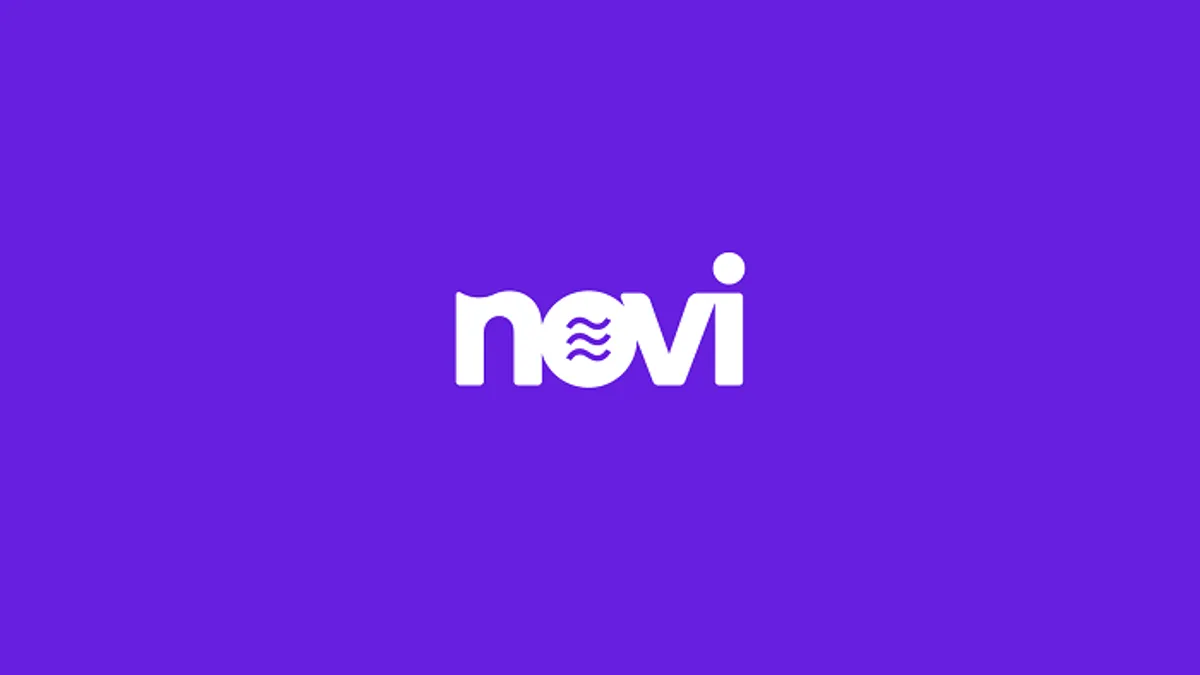Dive Brief:
- Facebook launched a pilot of its digital currency wallet, Novi, on Tuesday — but did so without the Diem stablecoin. Novi will instead use the Paxos Dollar (USDP), with Coinbase providing custody services, the social network said.
- “Our support for Diem hasn’t changed and we intend to launch Novi with Diem once it receives regulatory approval and goes live,” David Marcus, head of Novi and Facebook Financial, wrote Tuesday in a series of tweets.
- Within hours of the pilot announcement, five Democratic U.S. senators wrote Facebook CEO Mark Zuckerberg over their concerns with the project. “Time and again, Facebook has made conscious business decisions to continue with actions that have harmed its users and the broader society,” they wrote. “We urge you to immediately discontinue your Novi pilot and to commit that you will not bring Diem to market.”
Dive Insight:
Pushback from lawmakers — focused on the risk of money laundering and terrorism financing — has dogged Facebook's digital currency efforts since the company floated the idea of Diem, née Libra, in June 2019.
Two of the senators who wrote Zuckerberg on Tuesday — Hawaii's Brian Schatz and Ohio's Sherrod Brown — may have helped tank Libra's early development efforts. They wrote the CEOs of Stripe, Mastercard and Visa in October 2019, urging them to reconsider their backing of the project. The companies dropped out of the Libra Association the following day.
"Facebook cannot be trusted to manage a payment system or digital currency when its existing ability to manage risks and keep consumers safe has proven wholly insufficient," Schatz and Brown wrote Tuesday, along with Sens. Elizabeth Warren of Massachusetts, Richard Blumenthal of Connecticut and Tina Smith of Minnesota.
A Novi spokesperson acknowledged receiving the letter, telling Reuters, "We look forward to responding to the committee’s letter."
The Novi pilot aims to “test core feature functions, and operational capabilities in customer care and compliance” among a limited group of users in the U.S. and Guatemala, Marcus said, adding the effort could “demonstrate a new stablecoin use case.”
The concentration on Guatemala is meant to solve for underbanking. About 56% of people in the country lack access to financial services, although nearly all have mobile phones, Marcus said. Remittances make up 14% of Guatemala's gross domestic product, and 90% come from the U.S., he added.
Marcus said users can send money through Novi with no fees. But it's unclear whether fees crop up when users convert USDP to Guatemalan currency, TechCrunch noted.
Novi users who want to send money can download the Novi app through Google Play or the Apple App Store, create an account and add money using a payment method, such as a debit card. Once the pilot is at capacity, others will be placed on a waitlist. The service is not available in Alaska, Nevada, New York or the U.S. Virgin Islands.
Marcus said he aims for Novi to be interoperable with other digital wallets eventually.
As recently as August, Facebook said the Novi digital wallet would launch alongside Diem's digital coin, PYMNTS.com reported.
Diem, however, has faced its share of setbacks. Libra, as it was originally known, was first pitched as a cryptocurrency backed by a basket of currencies. Consistent pushback from lawmakers over regulatory concerns prompted the project to scale back to a single stablecoin backed by the dollar.
Libra then rebranded itself Diem and renamed its wallet Novi, from the original Calibra. (The rebranding strategy appears popular at Facebook. Speculation surfaced Wednesday indicating the social network is considering changing its corporate name.)
The Diem Association in May withdrew its application with Swiss regulator Finma for a payments system license, opting instead to move its primary operations to the U.S., where its subsidiary, Diem Networks U.S., sought to register as a money services business with the Financial Crimes Enforcement Network (FinCEN).
The five U.S. senators Tuesday took Facebook to task over that regulatory limbo, saying Zuckerberg told a House panel in 2019 that the company would “not be a part of launching the Libra payments system anywhere in the world unless all U.S. regulators approve it.”
"Your ability to secure state-issued money transmitter licenses is not equivalent to obtaining the blessing of 'all U.S. regulators,'" the senators wrote Tuesday.
The senators also cited a quote from Marcus, who said, “[w]e are definitely not going to launch without the proper regulatory framework."
“Despite these assurances, Facebook is once again pursuing digital currency plans on an aggressive timeline … even though these plans are incompatible with the actual financial regulatory landscape — not only for Diem specifically, but also for stablecoins in general.”
Treasury officials are preparing a report on stablecoins, and the Financial Stability Oversight Council may launch a formal review into whether the tokens pose systemic risk.
For now, Novi will be backed by USDP from Paxos, which received preliminary conditional approval for a banking charter in April from the Office of the Comptroller of the Currency (OCC).
Marcus, meanwhile, appears aware of Novi's uphill climb.
"Beyond the pilot, our business model is clear. We’re a challenger in payments," he tweeted Tuesday. "We’ll offer free person-to-person payments using Novi. Once we have a solid customer base, we’ll offer cheaper merchant payments and make a profit on merchant services."














